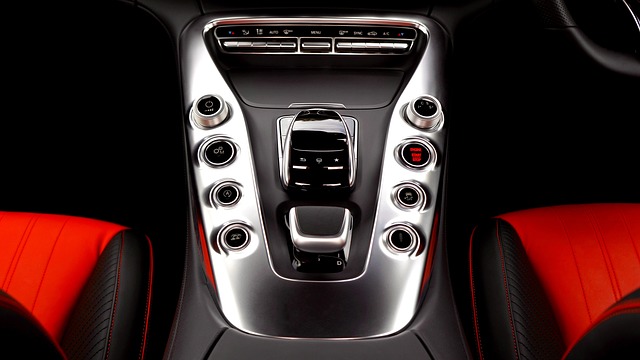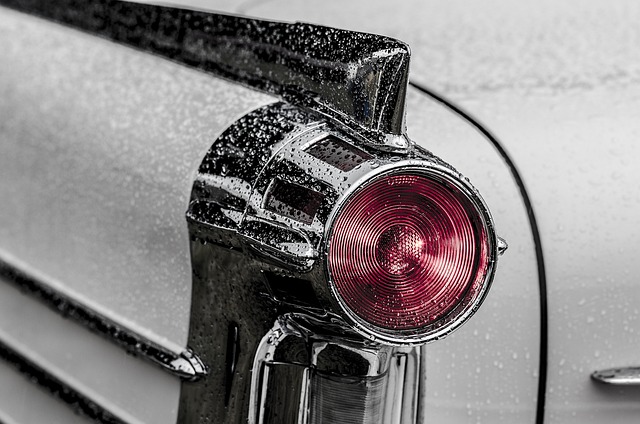Navigating PCP Car Return: A UK Checklist for Seamless Claims and Final Payments
When finalizing a Personal Contract Purchase (PCP) in the UK and it's time to return your vehi…….

When finalizing a Personal Contract Purchase (PCP) in the UK and it's time to return your vehicle, it's crucial to follow the PCP Car Return Checklist to ensure a smooth process. This checklist guides you on the necessary steps, including vehicle condition and mileage expectations at the end of the contract. Upon return, finance companies evaluate the car for outstanding finance, excess mileage, or unreasonable wear and tear against UK-specific PCP claims guidelines to determine if any claims are due. It's essential to understand your obligations, as non-compliance can lead to additional costs. The PCP claims process in the UK is subject to detailed regulations that mandate a fair and impartial evaluation, which may involve an independent reviewer. To avoid unexpected charges and for a straightforward handover, vehicle owners should prepare by cleaning the car, clearing out personal items, compiling all essential documents like the PCP agreement, service history, and maintenance records, ensuring the car has been maintained according to schedule, and that any pending PCP claims are settled. The car should be in a condition consistent with reasonable wear and tear for its duration under the PCP agreement. Adhering to these guidelines will help you navigate the end of your PCP agreement without issues, whether you choose to return the vehicle, purchase it outright, or trade it in. Remember to keep precise mileage records and a valid MOT certificate if applicable, and consult the British Vehicle Rental and Leasing Association (BVRLA) guidelines for clarification on your rights within the PCP claims framework in the UK. Lastly, engage with your finance provider for personalized guidance on the final payment or refund process to ensure a seamless transition towards car ownership or the return of the vehicle under a PCP claim.
Navigating the end of a Personal Contract Purchase (PCP) agreement requires careful attention to detail. This article serves as a comprehensive guide for UK drivers returning their vehicles under PCP claims. We’ll explore the essential steps to prepare your car, the critical documentation needed, and the financial considerations for your final payment or potential refunds. Understanding these elements ensures a seamless transition from vehicle owner to customer satisfied with a concluded agreement. With insights into common pitfalls and how to avoid them, you can confidently approach your PCP car return process, safeguarding your financial interests and maintaining compliance with UK regulations.
- Understanding PCP Car Return Checklist and Claims in the UK
- Steps to Effectively Prepare Your Vehicle for PCP Car Return in the UK
- Documentation Essentials: What You Need for a Smooth PCP Car Return Process
- The Financial Side of PCP Claims: Understanding Your Final Payment and Potential Refunds in the UK
- Common Mistakes to Avoid When Returning Your Vehicle on PCP Claims in the UK
Understanding PCP Car Return Checklist and Claims in the UK

When the contractual term for a Personal Contract Purchase (PCP) agreement reaches its end, vehicle owners in the UK are tasked with making a decision regarding the return of their car. The PCP Car Return Checklist is an essential tool that outlines the conditions and procedures for returning a financed vehicle at the conclusion of the agreement. This checklist is vital for understanding what is expected upon return and ensures both the buyer and the finance company are on the same page regarding the condition and mileage of the car.
Upon returning the car, the finance company will assess its condition to determine any potential charges that may apply. This is where the PCP claims process comes into play in the UK. If there are discrepancies between the expected and actual condition of the vehicle, the finance company may make a PCP claim. Such claims can encompass outstanding finance, excess mileage, or damage beyond what is considered fair wear and tear. It’s crucial for PCP agreement holders to be aware of their responsibilities at the end of the contract, as failing to adhere to these can result in additional costs. PCP claims UK-specific guidelines dictate the process, which includes a thorough inspection and may involve an independent assessment to ensure impartiality. Understanding the PCP Car Return Checklist is key to avoiding unexpected charges and ensuring a smooth handover of the vehicle at the end of the agreement.
Steps to Effectively Prepare Your Vehicle for PCP Car Return in the UK

When returning a car under a Personal Contract Purchase (PCP) agreement in the UK, it’s crucial to ensure your vehicle is prepared according to the terms outlined by the finance company. Upon deciding to return the car, start by thoroughly cleaning the interior and exterior to present it in the best possible condition. This not only makes the inspection process smoother but also ensures that any potential issues are more visible, which can be beneficial when assessing the final settlement figure based on the car’s value at the end of the agreement. Remove all personal belongings and effects from the vehicle to avoid any confusion or disputes regarding damages or missing items.
Before handing over the keys, make sure to gather all necessary documentation, including your PCP agreement, service history, and any other paperwork related to the car’s maintenance and repairs. If there have been any pcp claims in the UK made during your lease, keep records of these as well. Ensure that the car is up-to-date with all scheduled maintenance and that any outstanding pcp claims are settled. This will help prevent additional charges on your account and facilitate a smoother return process. Upon returning the vehicle, it should be in a similar condition to when you first took delivery, factoring in fair wear and tear. By following these steps, you can ensure a hassle-free PCP car return experience in the UK.
Documentation Essentials: What You Need for a Smooth PCP Car Return Process

When returning a car through a Personal Contract Purchase (PCP) agreement in the UK, ensuring that all documentation is in order is crucial for a seamless handover. To facilitate a smooth PCP car return process, it’s essential to gather and prepare specific documents before you approach the dealership. Firstly, the most important document you’ll need is your PCP agreement or contract, which outlines the terms of your finance arrangement, including the date from which the final payment was due. This contract should be accompanied by proof of any settlement figure paid if you’ve made a lump sum payment towards the end of your agreement. Additionally, keep handy all service and maintenance records, as these can demonstrate that you’ve looked after the vehicle, potentially adding value to the car upon return.
Furthermore, it’s advisable to have evidence of all mileage readings recorded throughout the term of the PCP agreement. These records should align with the figures detailed in your original contract. Incorrect or mismatched mileage can lead to complications and disputes. Alongside these, ensure you possess a valid MOT certificate if the car is over three years old, as this is a legal requirement in the UK. Lastly, don’t forget to gather the vehicle’s V5C registration certificate, also known as the logbook, which confirms the car’s details and ownership. By having all these documents ready, you can ensure a straightforward and efficient PCP claims process, making the return of your financed car less stressful and more transparent for both you and the finance provider.
The Financial Side of PCP Claims: Understanding Your Final Payment and Potential Refunds in the UK

In the UK, Personal Contract Purchase (PCP) has become a popular financial option for acquiring new cars. When a PCP agreement reaches its termination, both the final payment and the potential for a refund come into focus for the lessee. The final payment, set at the outset of the contract, is the lump sum that settles the remaining balance of the finance agreement and transfers the ownership of the car to you. It’s a predetermined amount, calculated based on the initial Guaranteed Minimum Future Value (GMFV) agreed upon with the finance provider. Understanding this figure is crucial as it’s the gateway to owning the vehicle outright. On the other hand, if you decide to return the car rather than opting to purchase it, you may be entitled to a potential refund. This refund arises from the difference between the GMFV and the car’s estimated residual value at the end of the agreement. To ensure you receive an accurate final settlement, it’s imperative to assess the car’s actual condition against the initial agreement terms. PCP claims in the UK are governed by detailed regulations, and both the lessee and the finance provider must adhere to these when determining the final payment or refund amount. Keeping a record of all payments made throughout the PCP term is advisable, as it helps in reconciling any outstanding balance accurately. Additionally, familiarising yourself with the British Vehicle Rental and Leasing Association (BVRLA) guidelines can provide clarity on the process and your rights as a PCP customer. Engaging with your finance provider for clear guidance on the procedure for your final payment or potential refund is essential to navigate this financial aspect of PCP claims efficiently in the UK.
Common Mistakes to Avoid When Returning Your Vehicle on PCP Claims in the UK

When returning a vehicle under PCP claims in the UK, it’s crucial to adhere to the agreed terms and conditions to avoid any potential issues. One common oversight is not reviewing the PCP agreement thoroughly beforehand. This can lead to misunderstandings about the final payment due or the expected condition of the car at return. Ensure you have a clear understanding of the balloon payment amount and the timeframe for its settlement to prevent any financial penalties. Additionally, keep detailed records of all maintenance and repairs performed on the vehicle throughout the term, as failing to do so could result in disputes over vehicle condition. It’s also important to adhere to the agreed mileage limit; exceeding it can lead to additional charges. Upon returning the car, conduct a thorough inspection to identify any pre-existing damage that could be misconstrued as new wear and tear. This due diligence helps ensure that you are not held responsible for damages incurred during your lease. Lastly, familiarize yourself with the specific protocols set by your finance provider for the return process, including the required documentation and the condition the vehicle should be in. By avoiding these common pitfalls, you can facilitate a smoother and more satisfactory PCP claim return process in the UK.
When concluding a lease or financing agreement under a Personal Contract Purchase (PCP) plan in the UK, adhering to a comprehensive checklist ensures a smooth transition. This article has outlined the critical steps and documentation required for returning your vehicle, emphasising the importance of understanding your final payment obligations and potential refunds associated with PCP claims. By following the guidelines on preparing your vehicle and avoiding common pitfalls, you can navigate the PCP claims process with confidence. Remember to keep all necessary paperwork in order, and consult the provided resources for a detailed understanding of your financial responsibilities. With these considerations addressed, you’ll be well-equipped to manage your PCP car return effectively within the UK framework.







